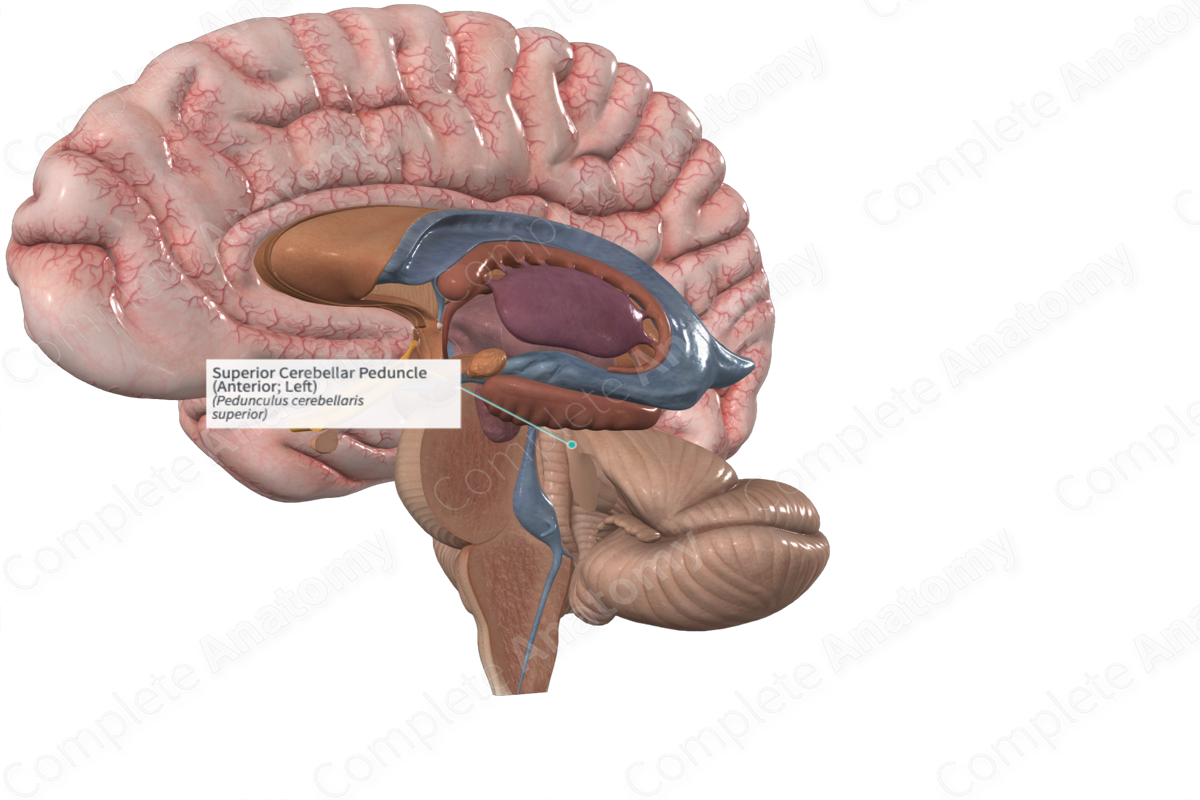
Superior Cerebellar Peduncle (Anterior; Left)
Pedunculus cerebellaris superior
Read moreQuick Facts
The superior cerebellar peduncle (aka rostral cerebellar peduncle, or brachium conjunctivum) consists of a large bundle of nerve fibers emerges from the cerebellum along the lateral wall of the fourth ventricle into the tegmentum where most of its fibers decussate.
The fibers originate from the dentate and interpositus nuclei. They terminate in the contralateral red nucleus and parts of the ventrolateral, ventral intermediate and central lateral nuclei of the thalamus.
Related parts of the anatomy
Learn more about this topic from other Elsevier products
Superior Cerebellar Peduncle

The parabrachial complex (PB) is a group of cells surrounding the superior cerebellar peduncle near the junction of the pons and mesencephalon (Fig. 1).



